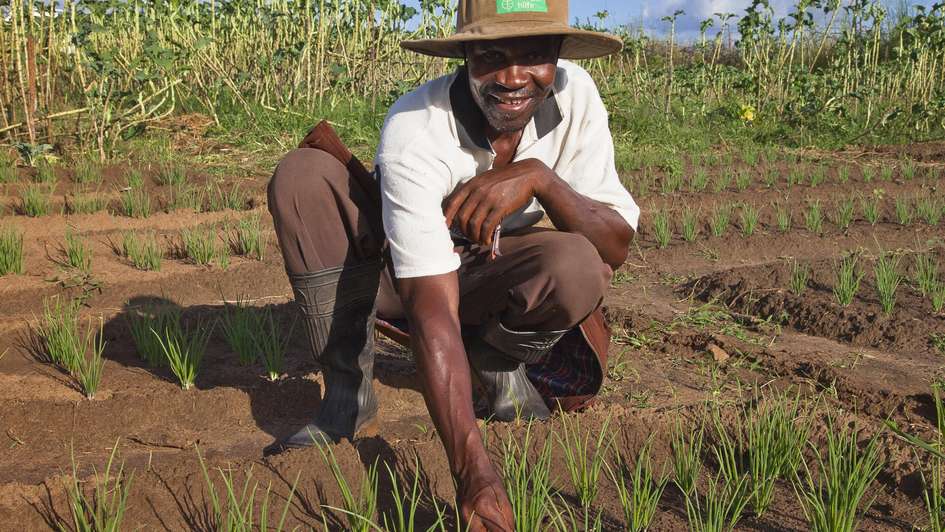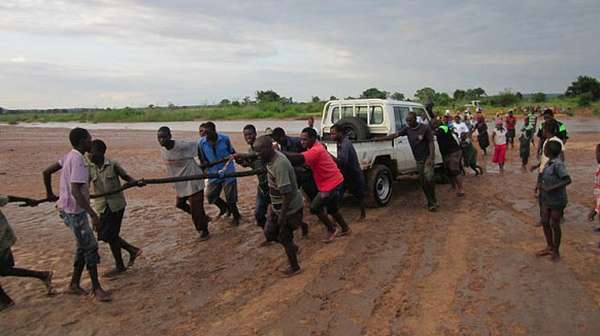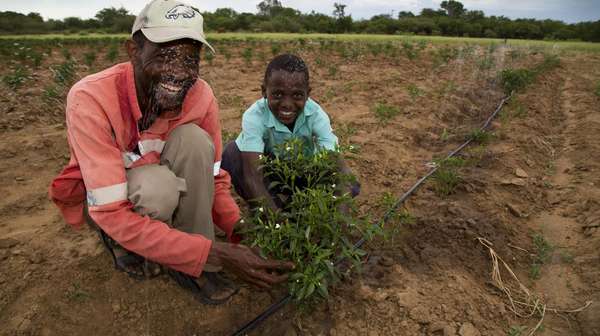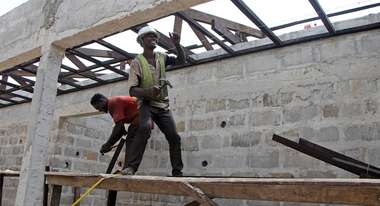That’s all in a day’s work
Making agricultural trade fair and supporting small farmers
Overcoming hunger through sustainable rural development and local value creation

More than 800 million people are going hungry around the world, and three-quarters of those in urgent need live in rural areas. Most are small farmers with families. The crops that they grow, harvest, and sell are often not enough to sustain them. To reach the goal of ZeroHunger by the year 2030, Welthungerhilfe (WHH) works for sustainable rural development and a fair trade policy.
Trade should narrow the gap between rich and poor
To enable farmers to live off their work, WHH demands:
- Small farmers need secure land rights, sufficient means of production and technical equipment, and access to credit.
- Raw materials and products should be processed, preserved, and packaged on site to create value in the region.
- Regional markets should be developed, and it should be easier for local farmers to access them.
- The value chains of production – from further processing and storage to sale – should be transparent and fair.
- Fairtrade agreements should be negotiated on a level playing field in such a way as to promote rural development in poor regions.
With its growing middle class, Africa is considered by big business as a lucrative target market for sales. Some German companies are among those that offer milk powder, poultry, and other products at such low prices that domestic producers simply cannot compete in the local or national markets. Furthermore, as these local small farmers grow up to 70 percent of food worldwide, it is not just personal livelihoods that are being destroyed; basic food sources for entire societies are being disrupted.
Economic Partnership Agreements (EPAs) currently negotiated between the EU and ACP states are not equal partnerships. The power relations underlying trade agreements between Europe and Africa are unequal, with European agro-industry supported by billions of euros in subsidies. This highly subsidized agroindustry, with its high-tech factories and economies of scale, stands in stark contrast to the smallholder structures that often struggle with unclear land titles, cultivated areas measuring around a hectare in size, poor roads, and a lack of technology.
Small farmers make a new start through empowering people to help themselves
Two WHH projects in Africa illustrate the effect of sustainable development work. In Sierra Leone, many fields have been fallow since the end of the civil war in 2002. Cocoa, one of the country’s most important exports, was left to virtually die out. However, when demand for fair-trade organic cocoa increased and prices on the world market rose, WHH helped farmers to take advantage of this lucrative source of income, assisting them with cultivation, fair-trade, and ecological certification and marketing efforts. The farmers sold their produce through a recently founded cooperative in order to eliminate the middlemen, reach exporters directly and increase their profit.
Another idea to help small farmers achieve greater independence was put into practice in Zimbabwe. For years, cotton was the main source of income for people in Gokwe South District, a region approximately 300 km from the nation’s capital, Harare. Unfortunately, the global market price for cotton is extremely low. As cotton now only fetches around USD 0.30 per kilogram, it is not possible to make a living cultivating the plant, especially as it is labor-intensive and requires high amounts of fertilizer. This would not even be the case if the seeds, fertilizer, and pesticide were provided free of charge by the government, as the breakeven point for cotton is USD 0.80 per kilo.
We have been supporting around 11,000 farmers in this region for years through the SIMBA project, which helps farmers to grow a wide range of foods and thereby reduce their dependence on cotton. Once the produce is ready, they sell it on the market as a collective in order to improve their overall income. Working with the Welthungerhilfe partner organisation “Agricultural Partnership Trust”, many small farmers in the region now grow African bird’s eye chillies. The produce is exported to South Africa through the collective’s business partners at Better Agriculture, where they are used to make peri peri sauce for the fast-food chain Nandos. Better Agriculture pays USD 2.70 per kilo of dried bird’s eye chillies. This is extremely reasonable, as the standard purchase price for red chilli is around USD 2.10 per kilo. However, “Better Agriculture” permits the Welthungerhilfe-affiliated farmers in this region to dry the chillies themselves, thereby increasing the value by 60 cents per kilo. This additional money remains with the farmers in the region, thus proving the effectiveness of Welthungerhilfe’s strategy.
Policies and consumers have the chance to support fair agricultural trade
These successful projects confirm WHH’s belief in the importance of rural development if we are to achieve the goal of #ZeroHunger. We now need more consistency in policy, especially in terms of international trade, economic interests, development cooperation, and finance. Governments in states affected by hunger also have a duty to put food and nutrition security and rural development at the heart of their agricultural policy. Finally, consumers can also help improve the lives of small farmers by making conscious and sustainable choices in terms of the products they consume.








